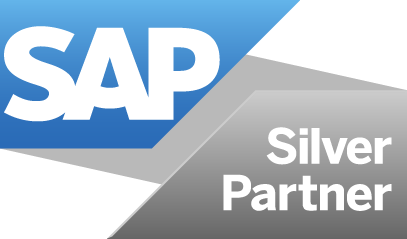Why Finance Leads the ERP Charge
Why Finance Should Be Your First Stop on the ERP Journey
Implementing a new ERP system can feel like a massive project, especially in the fast-paced world of retail. But here’s a pro tip: always start with finance. It might not sound glamorous, but trust me, finance is where the magic happens. Let’s break down why leading with finance in your ERP project is the smartest move for your retail business—served with a side of fun.
“Money Talks”—So Let’s Listen
Finance is the Heartbeat of Any Retail Operation
Without a good understanding of your financial health, it’s hard to make solid business decisions. By implementing the finance module first, you get a real-time view of cash flow, profit margins, and operational costs across all your stores and channels. According to a 2022 Gartner report, businesses that lead with finance in ERP implementations are more likely to see immediate improvements in financial transparency, which is crucial during those high-stakes periods like holiday sales. No more guessing games when it comes to pricing strategies or figuring out where your money is going!

The “Glue” That Holds It All Together
Finance isn’t just about numbers—it’s the glue that connects everything in your business. It touches inventory costs, supplier payments, payroll, and every single transaction at the point of sale. By putting finance first, you set the foundation for everything else. This makes rolling out future modules, like inventory management or sales tracking, so much smoother. Gartner also highlights that when finance is implemented first, subsequent ERP rollouts face fewer bottlenecks, as the groundwork for clean, standardized data is already laid. Without this solid base, things can quickly become chaotic—think of it like trying to build a house without a blueprint. Not a great idea, right?

Keep It Compliant (and Stress-Free)
No one likes dealing with regulations and audits, but they’re a part of life in retail. The good news? Starting with finance makes it a lot easier. A strong financial system ensures that your data is accurate and standardized from day one, making it easier to meet tax reporting requirements and sail through audits. Plus, as Gartner points out, a robust financial framework reduces the risk of errors in compliance and audit readiness, keeping things stress-free even when regulators come knocking.
Build for the Long Game
Starting with finance isn’t just about the short-term wins—it’s about setting your business up for long-term success. With finance as your foundation, integrating other functions like supply chain, POS systems, and customer management becomes a whole lot easier. And when you’ve got that solid financial backbone in place, you’re not just surviving—you’re thriving. As Gartner’s research emphasizes, a finance-first ERP approach ultimately leads to smoother expansions into other business areas, ensuring sustainable growth and efficiency.
Strong Foundation
Enhanced Financial Transparency
Smooth Integration
Increased Profitability
Efficient Scaling
Robust Compliance and Audit Readiness
Conclusion
So, when you’re kicking off your ERP transformation, don’t overlook finance. It might not be flashy, but it’s the key to making sure everything else in your retail business runs like clockwork. Start with finance, and everything else will follow smoothly (and maybe even a little more fun).

Kurt Ramcharan
Managing Partner
“Starting your ERP journey with finance might not sound glamorous, but it’s where the real magic happens. A finance-first approach provides the clarity, compliance, and cohesion your retail business needs to thrive. Think of it as building a solid foundation for everything else to run like clockwork.”

United States:
1160 Battery Street East, Suite 100, San Francisco, California, 94111
Canada:
One Dundas Street West, Suite 2500, Toronto, Ontario, M5G 1Z3
Brazil:
8th Floor, 90, Dolorez Alcaraz Caldas Ave., Praia de Belas, Porto Alegre, Rio Grande do Sul, 90110-180


